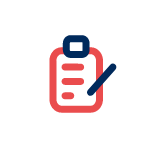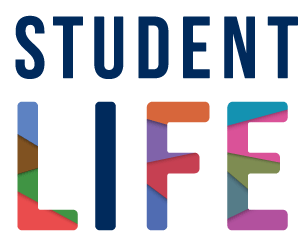These resources are designed for current peer mentors or for staff, faculty or students who are running or developing mentoring programs.
Mentorship is a learning relationship between two or more people, and it typically follows four phases:
- Preparing
Preparing is the discovery stage of the mentoring relationship:
- Discover your own personal motivation and readiness to be a mentor.
- Get to know your mentee and build rapport.
- Create a context for the learning partnership you and your mentee will build together.
Resource list:
- Mentorship Foundations (PDF) acts as a brief introduction to the foundations of mentorship including mentorship roles and best practices.
- Mentorship Competency Framework (PDF) introduces the four core competencies/skills for effective peer mentorship.
- Characteristics of Peer Mentors (PDF) examines the roles of student peer mentors in higher education as outlined in multiple literature reviews.
- Mentoring Skills Inventory (PDF) is a worksheet that encourages mentors to reflect on their key mentoring skills and develop a plan for areas that need improvement.
- Thinking About Your Personal Journey (PDF) is a worksheet for mentors that enables them to participate in self-reflection to develop their own unique mentoring style based on life experiences.
- Initial Conversations with Mentees (PDF) provides an outline for mentors to get to know their mentee(s) by creating points of connection.
- Virtual Mentoring (PDF) outlines a general list of items to explore when thinking about virtual mentoring benefits and challenges.
- Our Favourite Applications for Mentoring Online (PDF) is a resource developed by the Mentorship & Peer Programs team to showcase our preferred tools for mentoring online.
- Negotiating
Negotiating is the business stage of the mentoring relationship:
- Support your mentee by helping them create learning goals.
- Create a learning agreement with your mentee, to cover shared responsibilities and ground rules.
- Establish boundaries with your mentee.
Resource list:
- Goal Setting (PDF) is a worksheet that outlines SMART goal setting and the Four M Method of Achieving Goals to assist mentors with helping mentees set goals and develop strategies to achieve them.
- Developing a Mentoring Partnership Agreement (PDF) is an outline for mentors and mentees to work together to create a contract or learning agreement for their mentoring relationship.
- Template: Mentoring Agreement (PDF) is a second type of mentoring agreement template that encourages mentors and mentees to discuss expectations and goals when negotiating a partnership.
- Enabling growth
Enabling is the work stage of the mentoring relationship – this is where mentors will have the most contact with their mentees:
- Support your mentee’s learning and challenge their assumptions through one-on-one mentoring or mentor-led group work.
- Provide useful feedback to them to help them achieve their desired learning goals.
Resource list:
- Learning About Active Listening (PDF) is a resource that encourages mentors to actively listen and to consider the difference between listening and hearing.
- Four Types of Listening (PDF) outlines four types of listening: downloading, factual, empathic, generative.
- Having 1-on-1 Conversations with Mentees (PDF) is a useful tool for structuring one on one mentoring conversations.
- Emotional Intelligence, Intuition and Mentoring Relationships (PDF) explores emotional intelligence (EQ) and how it relates to mentoring relationships.
- Open-Ended Questions & Listening Exercise PDF) is a personal reflection listening exercise that encourages the use of open-ended questions in a mentoring relationship.
- Facilitating Growth and Development (PDF) identifies opportunities for mutual learning, growth and community building.
- Facilitating Impactful Reflection (PDF) explores the DEAL model of reflection and how mentors can encourage mentees to reflect on their learning.
- Group Facilitation (EFFECT formula) (PDF) outlines the EFFECT formula as a tool for facilitating group learning.
- Interactive Strategies for Engaging Mentees (PDF) provides mentors with a list of interactive strategies for increasing engagement of mentees.
- Re-engaging Mentees (PDF) is a guide for revitalizing the partnership after a period of absence. This activity can be used as a starting point for re-connecting mentors and mentees.
- Identifying & Referring Students in Difficulty (PDF) is a guide for peer mentors when it comes to identifying signs of distress and referring students to appropriate support services.
- Coming to closure
Coming to closure is the reflection stage of the mentoring relationship:
- Assess the value of your mentoring partnership.
- Identify areas of growth and learning.
- Celebrate learning outcomes achieved.
Resource list:
- Impactful Reflection and Preparing for Closure (PDF) encourages impactful reflection of learning goals outlined at the beginning of the mentoring relationship.
- Coming to Closure with Mentees (PDF) is a collection of exercises that are intended to guide a thoughtful reflection between mentor and mentee.
- Self-Reflection: Turning Closure into Learning (PDF) is a worksheet that encourages mentors to reflect on what they have learned throughout their mentoring role. This exercise emphasizes the fact that mentoring relationships are reciprocal and both mentors and mentees learn throughout their journey.
-

Associated Programs
Finding Your Own Mentor
A six module e-course that will lead you through steps to start cultivating a mentoring relationship
Learn more about Finding Your Own MentorMentorship Foundations Training
A 6-hour program to help you get the most out of your mentoring experience by building your definition of leadership, identifying strengths and finding a community of peer mentors on campus!
Learn more about Mentorship Foundations TrainingStudent Experience Mentorship Program
A unique opportunity to mentor a staff or faculty member and share what it is like to be a student at U of T
Learn more about Student Experience Mentorship Program -

Associated Services
African Black Caribbean, Latin American, Southeast Asian & First Generation Student Engagement newsletter
Sign up for the African Black Caribbean, Latin American, Southeast Asian & First Generation Student Engagement newsletter! It lists upcoming events and opportunities for underrepresented students. Learn more about African Black Caribbean, Latin American, Southeast Asian & First Generation Student Engagement newsletter




